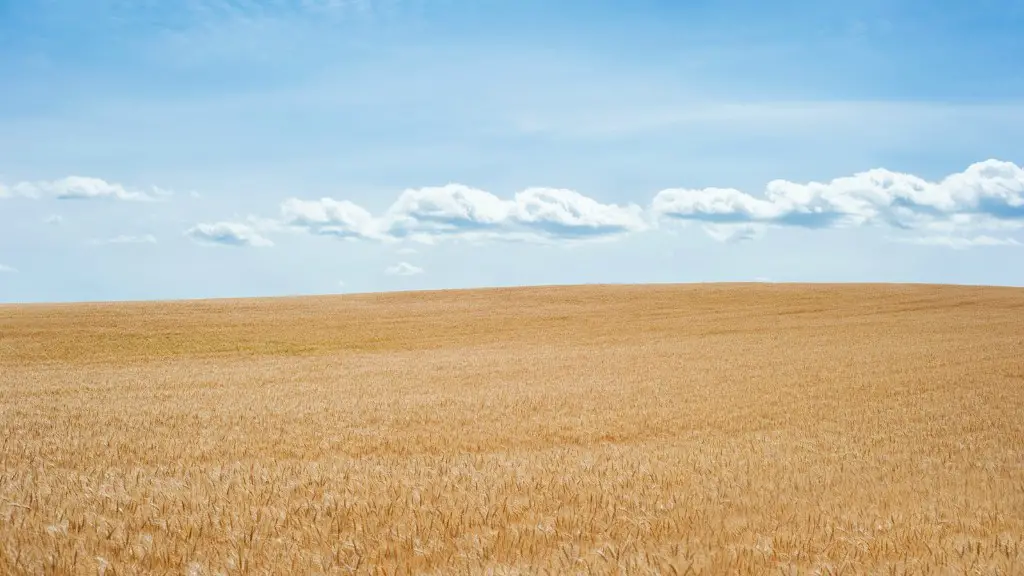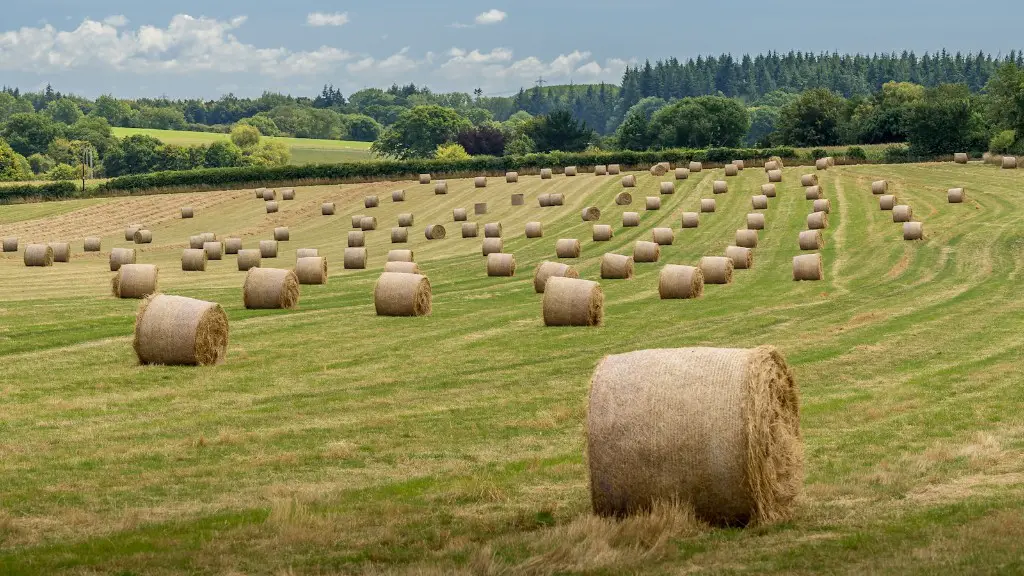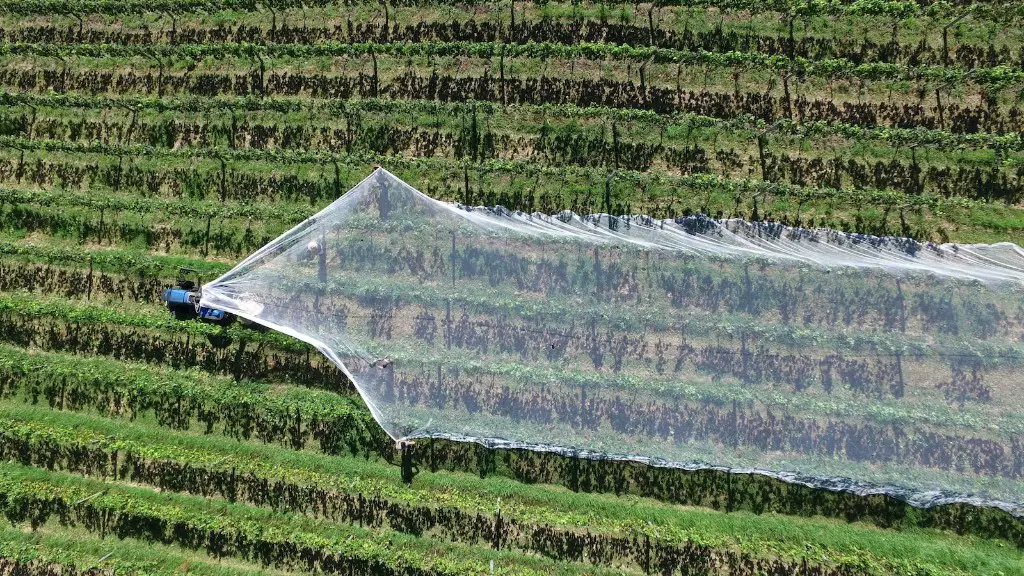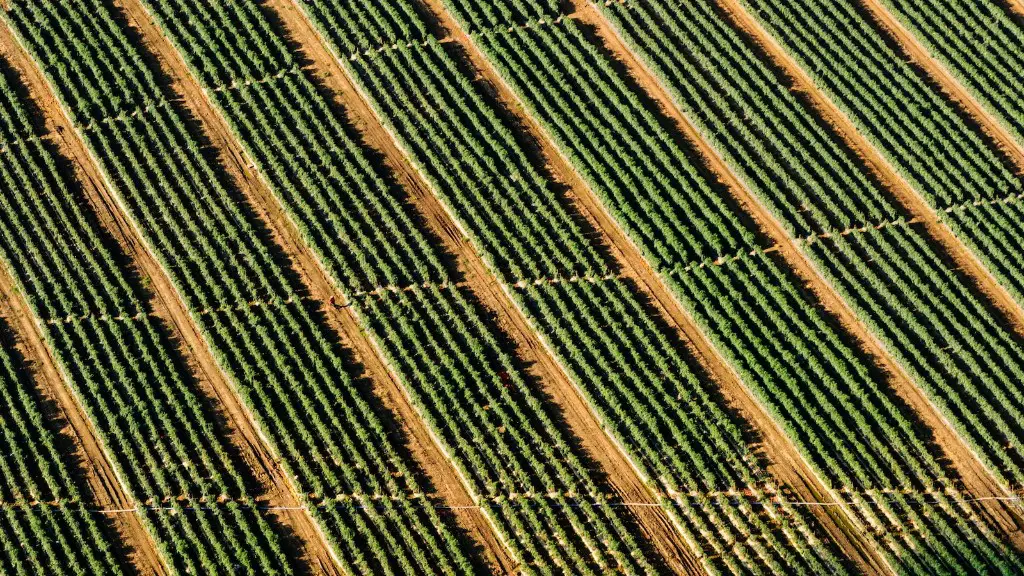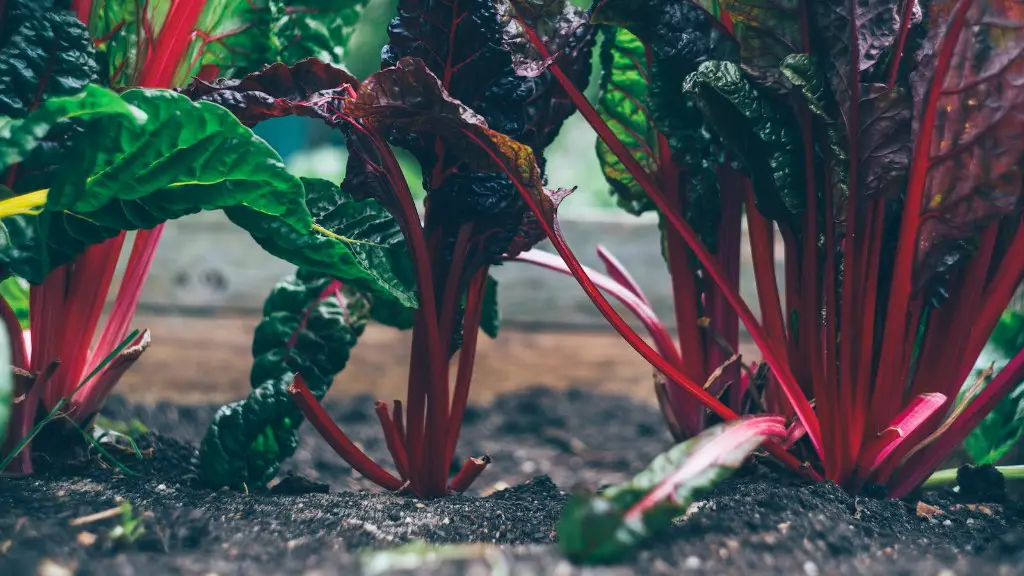Agriculture has been around for thousands of years and is one of the most important inventions of all time. To be more specific, the earliest records of agriculture date back to around 8,500BC. While other forms of cultivation appeared earlier, the introduction of grain cultivation revolutionised the way humans feed themselves. From the early days of cultivation, agriculture has been an essential part of our lives, and continues to shape the world today.
At the root of agriculture are the cultivation of crops and domestication of animals. Domestication is the process of humans selectively breeding animals to acquire desired traits. This process allowed humans to harvest crops and tend to animals in order to produce food for themselves. By doing so, early humans freed up some of their time and energy, which could then be devoted to other tasks. By improving efficiency, humans were able to settle in larger communities, allowing for the growth of civilizations.
Cultivating crops and domesticating animals allowed humans to develop diverse societies and cultures. With the aid of grains like wheat, rye, and barley, societies could sustain themselves during times of famine. Having access to nutritious food supplies improved the health of individuals, leading to greater population growth and development of the human race.
Agriculture has had an immense impact on the planet and its inhabitants. By producing crops and livestock, humans have been able to significantly increase their food supply. This decrease in food scarcity has allowed for an increased population and improved living standards, both of which are key to the development of more sophisticated societies and cultures.
Today, agriculture remains one of the largest industries in the world. As technology continues to advance, so too does our understanding of the farming process, allowing us to produce larger quantities of food with lesser inputs. With the world’s population ever increasing, the importance of agriculture can only grow with it. By harnessing the power of agriculture, the human race will be able to continue to thrive.
The economic importance of agriculture
Agriculture has played a major role in determining the economic state of countries throughout history. In the past, a nation’s agricultural success was believed to be a way to measure its success in terms of wealth and power. The same concept applies today, as agriculture remains an important sector of the economy, with a wide range of industries contributing to its success. By providing jobs, resources and capital, agriculture has become an essential part of our lives.
Agricultural production is responsible for a large percentage of the world’s exports. This means countries are able to export their products to other countries, providing a major source of income. Additionally, with the development of food technology, countries are now able to produce foods that meet the needs of a wider range of consumers. This increases the demand for locally produced foods, providing a further boost to the economies of many countries.
Furthermore, investing in the agricultural sector has a positive effect on job creation, poverty reduction, and environmental sustainability. Agriculture provides employment and business opportunities, while also giving farmers access to markets and resources. In addition, agricultural investments can lead to increased food security and improved nutrition, both of which are essential for the development of a nation.
Finally, investments in agriculture can help reduce the impacts of climate change. Sustainable farming practices can help mitigate the effects of global warming, while also preserving resources. Furthermore, proper management of land and water resources can help ensure food production remains viable in the future.
The technological advancements of the last decade
In the last decade, agricultural technology has drastically advanced. Through the use of GPS navigation, drones, greenhouses and robotic tractors, farmers are now able to cultivate crops more efficiently and with greater precision. With the advancements of technology, farmers can now monitor and respond to environmental conditions, as well as store and track large amounts of data.
The use of precision agriculture technologies can significantly reduce the costs associated with farming. By automating certain tasks, such as fertilizer and pesticide application, farmers can reduce labour costs and increase the efficiency of their operations. Additionally, the use of sensors and data collection techniques can help farmers identify which areas of their land are most productive, allowing them to focus their resources on the most productive areas.
Moreover, the use of artificial intelligence and machine learning in agriculture has potential to revolutionise how we grow our food. By using AI, farmers can predict harvest yields, as well as identify and respond to diseases in a timely manner. Furthermore, AI can also help optimise irrigation and fertiliser use, as well as detect plant diseases and pests.
In conclusion, the advances in agricultural technologies in the last decade have drastically improved the ways in which we cultivate and harvest our food. Through the use of robotics, sensors, and advanced analytics, farmers have become better equipped to tackle the environmental conditions of their land, resulting in reduced labour costs, improved yields, and higher quality food.
The impact of climate change
Climate change has had an increasing impact on agriculture over the past decade. The changing climate caused by global warming is making it more difficult for farmers to cultivate their crops and tend to their livestock, resulting in decreased yields, increased water stress, and lower quality food. Moreover, rising temperatures can also result in increased levels of pests and plant diseases, further damaging crops.
In addition, climate change can also affect the availability of water, leading to shortages and reduced crop yields. In addition, extreme weather events can have a devastating effect on crop yields and the livelihoods of farmers. By increasing the frequency and severity of storms, floods and droughts, the ability of farmers to cultivate their land is significantly reduced, leading to decreased crop yields.
It is therefore essential that we take steps to mitigate the impact of climate change on agriculture. To do this, farmers need to use sustainable agriculture practices and invest in climate resilient technologies. By doing so, we can ensure that agricultural production remains viable in the future. Furthermore, we must also ensure that farmers have access to the resources they need, such as water and agricultural extension services, to succeed in the face of climate change.
In conclusion, it is clear that the effects of climate change are having a significant impact on agriculture. With the increasing global population and the need for food production to keep up, it is essential that we take steps to mitigate the effects of climate change and invest in climate resilient technologies.
Agricultural investments and sustainability
Investing in the agricultural sector is essential for the continued growth of the industry. By investing, governments, businesses and individuals are able to help ensure the sustainability of the agricultural sector, while also providing an economic boost to the broader economy. These investments can come in the form of financing, research and development, or infrastructure improvements.
Government investments can be particularly beneficial to the agricultural sector. By investing in infrastructure, research and training, governments can improve the capabilities of farmers and increase crop yields. Furthermore, government investments can also help to ensure food security in the long run, by providing vital resources and access to markets.
Furthermore, businesses can also play an important role in the agricultural sector. By investing in innovative technology, farmers can become more productive and efficient, resulting in reduced costs and increased profits. Similarly, businesses can also provide a source of financing for farmers, allowing them to invest in land and equipment. Finally, businesses can also provide vital resources, such as crop protection, which can help prevent crop losses.
Lastly, individuals can also play an important role in the agricultural sector. By supporting local farmers, individuals can help cultivate healthy, sustainable communities. Similarly, individuals can also reduce their own impact by reducing their consumption of animal products. Doing so can help decrease the demand for meat, and therefore help reduce the environmental impacts of livestock production.
In conclusion, investments in the agricultural sector are essential for the sustainability of the industry. By investing in infrastructure, research and development, and new technologies, governments, businesses and individuals can help ensure the continued success of the agricultural sector in the long term.
